 History
History  History
History  Weird Stuff
Weird Stuff 10 Wacky Conspiracy Theories You Will Need to Sit Down For
 Movies and TV
Movies and TV 10 Weird Ways That TV Shows Were Censored
 Our World
Our World 10 Places with Geological Features That Shouldn’t Exist
 Crime
Crime 10 Dark Details of the “Bodies in the Barrels” Murders
 Animals
Animals The Animal Kingdom’s 10 Greatest Dance Moves
 Movies and TV
Movies and TV 10 Box Office Bombs That We Should Have Predicted in 2025
 History
History 10 Extreme Laws That Tried to Engineer Society
 History
History 10 “Modern” Problems with Surprising Historical Analogs
 Health
Health 10 Everyday Activities That Secretly Alter Consciousness
 History
History 10 Dirty Government Secrets Revealed by Declassified Files
 Weird Stuff
Weird Stuff 10 Wacky Conspiracy Theories You Will Need to Sit Down For
 Movies and TV
Movies and TV 10 Weird Ways That TV Shows Were Censored
Who's Behind Listverse?

Jamie Frater
Head Editor
Jamie founded Listverse due to an insatiable desire to share fascinating, obscure, and bizarre facts. He has been a guest speaker on numerous national radio and television stations and is a five time published author.
More About Us Our World
Our World 10 Places with Geological Features That Shouldn’t Exist
 Crime
Crime 10 Dark Details of the “Bodies in the Barrels” Murders
 Animals
Animals The Animal Kingdom’s 10 Greatest Dance Moves
 Movies and TV
Movies and TV 10 Box Office Bombs That We Should Have Predicted in 2025
 History
History 10 Extreme Laws That Tried to Engineer Society
 History
History 10 “Modern” Problems with Surprising Historical Analogs
 Health
Health 10 Everyday Activities That Secretly Alter Consciousness
10 Heroic Acts Of Bravery That Involved Disobeying A Direct Order
In the military, personnel are taught to always obey the lawful orders of those placed in positions of command over them. In turn, military commanders are taught the weight of those orders and how they can either save soldiers’ lives or lose them. Throughout history, men and women have followed orders in combat, but sometimes, an order is given and disregarded when a person decides that their life is less important than the lives of others. Here are 10 acts of bravery that were performed when someone decided that the order they were given was not worth the potential cost to their fellow combatants, civilians, or humanity.
10 Sergeant Dakota Meyer
US Marine Corps, Operation Enduring Freedom
Sergeant Meyer was serving in Afghanistan in 2009 where, at the Battle of Ganjigal, he was instructed by his commander to disregard a distress call due to an order to fall back. Nearly 100 American troops were pinned down by enemy fire and were repeatedly denied artillery support. Sergeant Meyer realized that the possibility of those troops’ survival was unlikely and took matters into his own hands.
After being told by his commanding officer to remain behind with the unit’s vehicles, Meyer refused to follow the order and got into a Humvee with his driver. Under heavy enemy fire, Meyer drove into and out of the battle zone five times and was able to save the lives of more than a dozen fellow Marines.
Meyer’s website describes his actions:
Over the course of the five hours, he charged into the valley time and again. Employing a variety of machine guns, rifles, grenade launchers, and even a rock, Meyer repeatedly repulsed enemy attackers, carried wounded Afghan soldiers to safety, and provided cover for dozens of others to escape.
For his heroic actions in the face of overwhelming odds, and in spite of his refusal to follow the orders of his superior officer, Sergeant Dakota Meyer was awarded the Medal of Honor.
9 Private Daniel Hellings
British Army, Operation Enduring Freedom
Private Daniel Hellings was on patrol with several Afghan soldiers in Helmand Province, Southern Afghanistan, when an improvised explosive device (IED) exploded in a narrow alleyway. The blast severely injured two service members, blinding one and damaging the other’s legs. Shortly after the first explosion, another was triggered only a few meters from Private Hellings, and a third soldier was injured.
Private Hellings’s commander immediately ordered him to withdraw from the alleyway because it was too dangerous. The commander insisted that an alternate route be found so that they could evacuate the injured soldiers. Hearing these orders, Private Hellings got down on the ground and began an hour-long fingertip search for more explosives. A fingertip search is exactly what it sounds like: He prodded the dirt and debris very carefully and methodically so that he could find the IEDs without setting them off. This is accomplished by lying on the ground only a few inches from the explosives.
He was able to uncover four IEDs, one of which had command wires running the length of the alley, but instead of waiting for a bomb-disposal unit, he continued. His fearless act of bravery in defiance of orders helped to save the lives of his three injured comrades. For demonstrating “a level of courage and ability far beyond that which could be expected of his age, rank, and experience,” Private Hellings was awarded the Queen’s Gallantry Medal.
8 Major General Daniel Edgar Sickles
Union Army, Battle Of Gettysburg
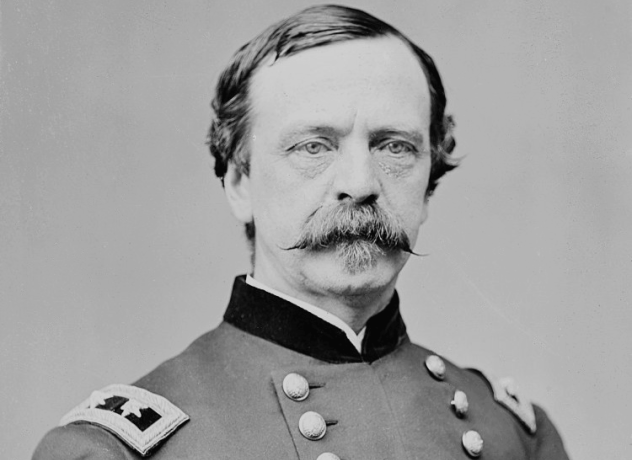
This one is contentious among Civil War historians and has been since the Battle of Gettysburg. General Sickles was commander of the Third Corps under General George Meade during the Battle of Gettysburg in 1863. After being told to move his unit to Little Round Top, Sickles refused and instead moved his men to Peach Orchard, where they were nearly destroyed.
With the Union forces in the wheat field and peach tree orchard, the Confederates, under the command of General James Longstreet, initiated an attack. The small Union forces were nearly destroyed in the attack. Even though his defiance of orders led to the deaths of many of his men, General Sickles’s choice to fight in the orchard instead of the little hilltops allowed for a counteroffensive along the flanks of the attacking Confederates to succeed, thus routing the Rebels and helping to win the battle.
General Sickles was injured in the battle and lost a leg, which he donated to the Army Medical Museum in Washington, DC. He spent many of his remaining years defending his actions as being instrumental in the defeat of the Confederacy at Gettysburg. He was awarded the Medal of Honor (the only combat medal given at the time) and helped to preserve the battlefield at Gettysburg for its use as a cemetery and national historic site.
7 Lieutenant Colonel Stanislav Petrov
Soviet Union
If you don’t recall the time back in the early 1980s when the United States and the Soviet Union fought in a bitter thermonuclear war, then we all owe a debt of thanks to Lieutenant Colonel Stanislav Yevgrafovich Petrov. Colonel Petrov was in charge of the command center for the Oko Nuclear Early Warning System when, on September 26, 1983, he disobeyed a standing order to report the probable launch of American nuclear missiles to his command, suspecting that it was a false alarm. It was.
Petrov knew that if he alerted his superiors, they would likely order retaliation with nuclear missiles and begin World War III. Because of his ability to think on his feet and surmise the threat as being a false alarm, he effectively saved the entire world from nuclear annihilation. The incident exposed a flaw in the Soviet Union’s missile-warning system and helped to prevent any future situations. Petrov was neither awarded nor punished for his failure to follow orders, but he is remembered as the man who prevented a nuclear war.
6 First Lieutenant Frank Luke Jr.
US Army Air Corps, World War I
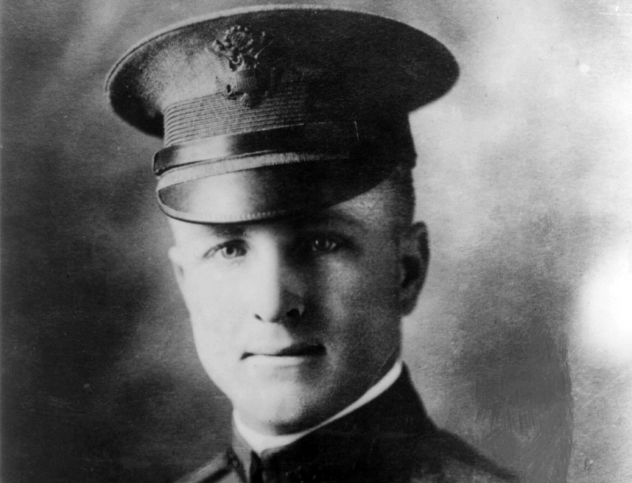
First Lieutentant Frank Luke Jr. holds the distinguished honor of being the first aviator in US history to receive the Medal of Honor. The award was given to him posthumously following a daring raid that he undertook in spite of being ordered not to fly.
On September 28, 1918, Luke was grounded by his commanding officer and told that he could not fly and would be charged as being absent without leave (AWOL) if he flew the following day. Disregarding this order, Luke took to the skies in his SPAD XIII (a French biplane used at the time) and went on a balloon hunt. Luke was already considered an ace for having 15 aerial combat victories and was known as “The Balloon Buster” for his skill in taking out German aerial reconnaissance balloons, which were used as spotters for artillery. The balloons were always heavily defended by anti-aircraft guns, but Luke went after them anyway.
On what would be his final flight, he successfully took out three balloons before taking heavy machine gun fire and being forced to ditch his aircraft. He climbed from the wreckage and confronted the German military with his sidearm before finally succumbing to his injuries. Regardless of his failure to follow orders, First Lieutenant Frank Luke Jr. was awarded the Medal of Honor for his remarkable skill in being able to destroy 18 balloons in only 18 days of combat.
5 Lieutenant Albert Battel
German Wehrmacht, World War II
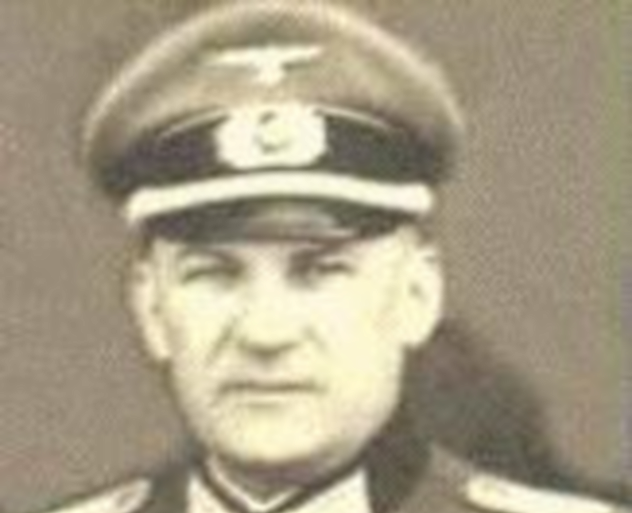
Dr. Albert Battel, a lawyer, a member of the Nazi party, and a lieutenant in the German army, was able to block the SS from taking Jews from the Przemysl ghetto to the Belzec Extermination Camp. He was in command of a unit stationed in Przemysl, Poland, and was in charge of monitoring the Jewish ghetto laborers who were working for the army.
On July 26, 1942, Battel ordered his troops to block off and seal a bridge in order to keep the SS from entering the ghetto to remove the prisoners. Knowing that he was not only defying orders, but also putting himself and his men in danger, Lieutenant Battel was able to extract 80–100 Jewish families and move them to his army headquarters to protect them. Sadly, he was unable to prevent the SS from returning the following day and extracting the remaining Jews. While he wasn’t able to save all of them, several hundred people were able to survive the war thanks in large part to the actions of defiance of one German army officer.
Battel was only reprimanded by his superiors for his actions, and he was eventually promoted before being returned to the front lines. He didn’t know that his actions had reached the ear of Heinrich Himmler, who insisted that he be abolished from the Nazi party at the conclusion of the war and arrested. This never came to pass, as Battel was discharged due to a heart condition in 1944.
He survived the war, and his work and efforts in saving the Jews was honored as being “Righteous among the Nations,” a special honor for Gentiles who worked during the holocaust to save Jews from extermination from the Nazis.
4 Corporal Desmond Doss
US Army, World War II
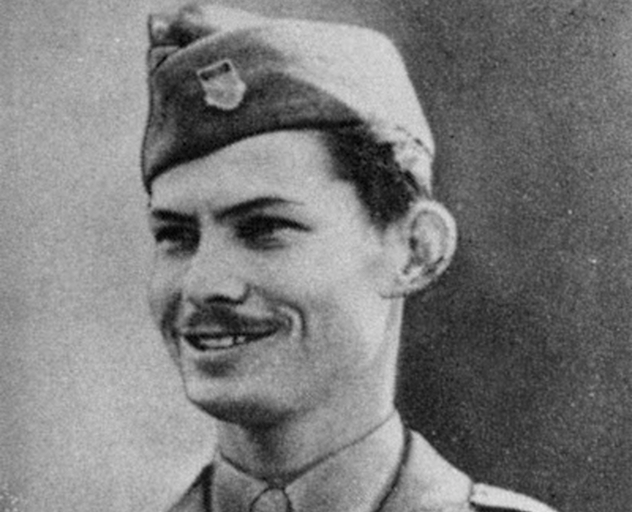
Interestingly, Corporal Desmond Doss defied orders by refusing to carry any weapon into combat, not even a knife. This was the result of his personal beliefs as a member of the Seventh-day Adventist church. Though he was able to join the military and serve during World War II, Corporal Doss maintained his status as a conscientious objector.
His refusal to carry a weapon and his actions as a medic earned him the Medal of Honor. In April 1945, Doss was accompanying the First Battalion as they attempted a summit where they took heavy artillery and small-arms fire. Seventy-five men were wounded in the attack, but Corporal Doss refused to take cover and instead personally moved all 75 men, one at a time and under heavy fire, to a safe area. The following month, he again exposed himself to heavy rifle and mortar fire in the rescue of another man who was severely injured.
On at least five separate occasions over the course of approximately 22 days, Corporal Doss personally rescued dozens of his comrades while under enemy fire. He was finally wounded by a grenade, which severely damaged his legs, and was struck by a sniper’s bullet, which injured his arm. Even then, he insisted that he be taken off his litter in lieu of another man whom he considered to be more seriously wounded. For his bravery in the face of severe enemy opposition and for his refusal to carry even the smallest means to defend himself, Corporal Doss was awarded the Medal of Honor.
3 Lieutenant Thomas Currie ‘Diver’ Derrick
Second Australian Imperial Force, World War II
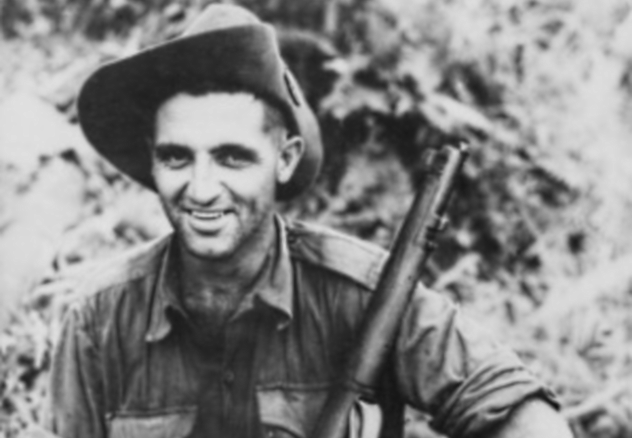
During the Battle of Sattleberg, in New Guinea, Lieutenant Derrick distinguished himself and was awarded the Victoria Cross, the highest military decoration for members of the British and Commonwealth armed forces. The battle was hard-fought and may not have been as successful for the Australians had Derrick obeyed the orders of his commanding officer and withdrawn as he was told.
The Battle of Sattleberg was a push against Japanese forces for control of the town of Sattleberg, in which the Australians slowly saw gains over a period of eight days. As they advanced, the Japanese soldiers pressed hard against them, and the cost was high. On November 24, 1943, Derrick was in command of a small unit and was told to withdraw due to an inability to push for further ground. In response, Derrick said, “Bugger the CO. Just give me twenty more minutes and we’ll have this place.”
He then proceeded to move his men further up the hill toward the city and silenced 10 machine gun posts with accurate rifle and grenade fire from approximately 7 meters (23 ft). His push demoralized the Japanese forces, who withdrew from their position. Derrick then returned to his platoon and pushed them further toward the town before the rest of the battalion joined them the following morning and succeeded in taking the city.
The battalion commander insisted that the flag be hoisted by Derrick, who raised the Australian Red Ensign above Sattleberg, New Guinea, at 10:00 AM on November 25, 1943. For his gallantry in combat and in spite of his refusal to follow orders to withdraw, the king awarded Derrick with the Victoria Cross stating that, “Undoubtedly Sergeant Derrick’s fine leadership and refusal to admit defeat, in the face of a seemingly impossible situation, resulted in the capture of Sattleberg.”
2 Major David Teich
US Army, Korean War
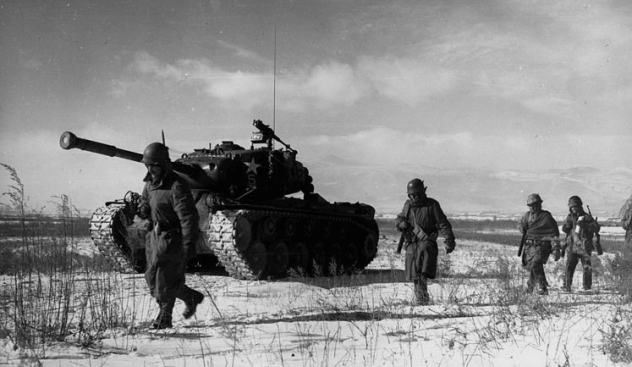
On April 24, 1951, then-Lieutenant David Teich was a member of a tank company that was near the 38th Parallel (the boundary that currently marks the demilitarized zone between North and South Korea) when a weak radio call came in for support. Members of the Eighth Ranger Company were nearby, wounded, and under heavy fire, as nearly 300,000 Chinese soldiers moved toward their position. Having been ordered to withdraw, Teich approached his commander and asked if he and some of his fellow tankers could remain behind and attempt to rescue the Rangers.
The captain replied, “We’ve got orders to move out. Screw them. Let them fight their own battles.” Leich refused to follow that order and manned a rescue attempt anyway. When the tanks approached Hill 628, 65 Rangers climbed the hill under heavy fire and boarded the tanks. So many men were sitting on the tanks that the guns were no longer visible.
Teich’s actions saved the lives of dozens of men who would certainly have been killed or captured had he not disobeyed the orders of his commanding officer. More than six decades after the war, Teich still receives letters from the survivors thanking him for what he did on that day in April 1951.
1 General Dietrich Von Choltitz
German Wehrmacht, World War II
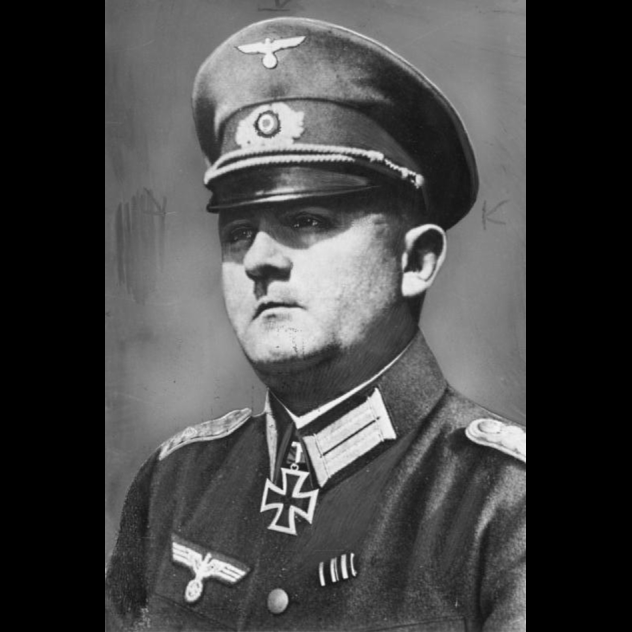
General Dietrich von Choltitz took command of Nazi-occupied Paris on August 8, 1944. When he did so, Hitler told him that he should be prepared to destroy all religious and historic monuments should the city fall to the Allies. At the time, the Allied forces of the United States, Great Britain, and the French Resistance fighters were closing in on the city.
Paris was surrendered on August 25 without a monument or building destroyed. In his memoir Is Paris Burning? Choltitz wrote that the titular question was asked of him by Hitler, but knowing the city was lost and not wanting to cause further destruction, bloodshed, and damage, Choltitz refused to follow the orders of the fuhrer. “If for the first time I had disobeyed, it was because I knew that Hitler was insane.” Choltitz risked the lives of his family and himself by lying to the chief of staff, informing him that the destruction of Paris had begun.
According to both Choltitz and his son, these events played out as he said. The French have never accepted these claims and have instead insisted that over 2,000 French Resistance fighters liberated the city. Even though the French insist that it was the Parisians themselves who saved the city, it is apparent that Choltitz was both ordered to destroy the City of Lights and had an opportunity to do so. He may have chosen to disregard the order from Hitler for his own reasons, but the fact remains that the orders were never carried out, and Paris remains a center for art and culture to this day.
Jonathan is an amateur graphic artist, illustrator, and game designer with a few independently-published games through his game company, TalkingBull Games. He enjoys researching and writing about history, science, theology, and many other subjects.






